TOLI’s Transnational Conference for European Seminar Graduates Transnational Leadership Seminar (Offered in English)
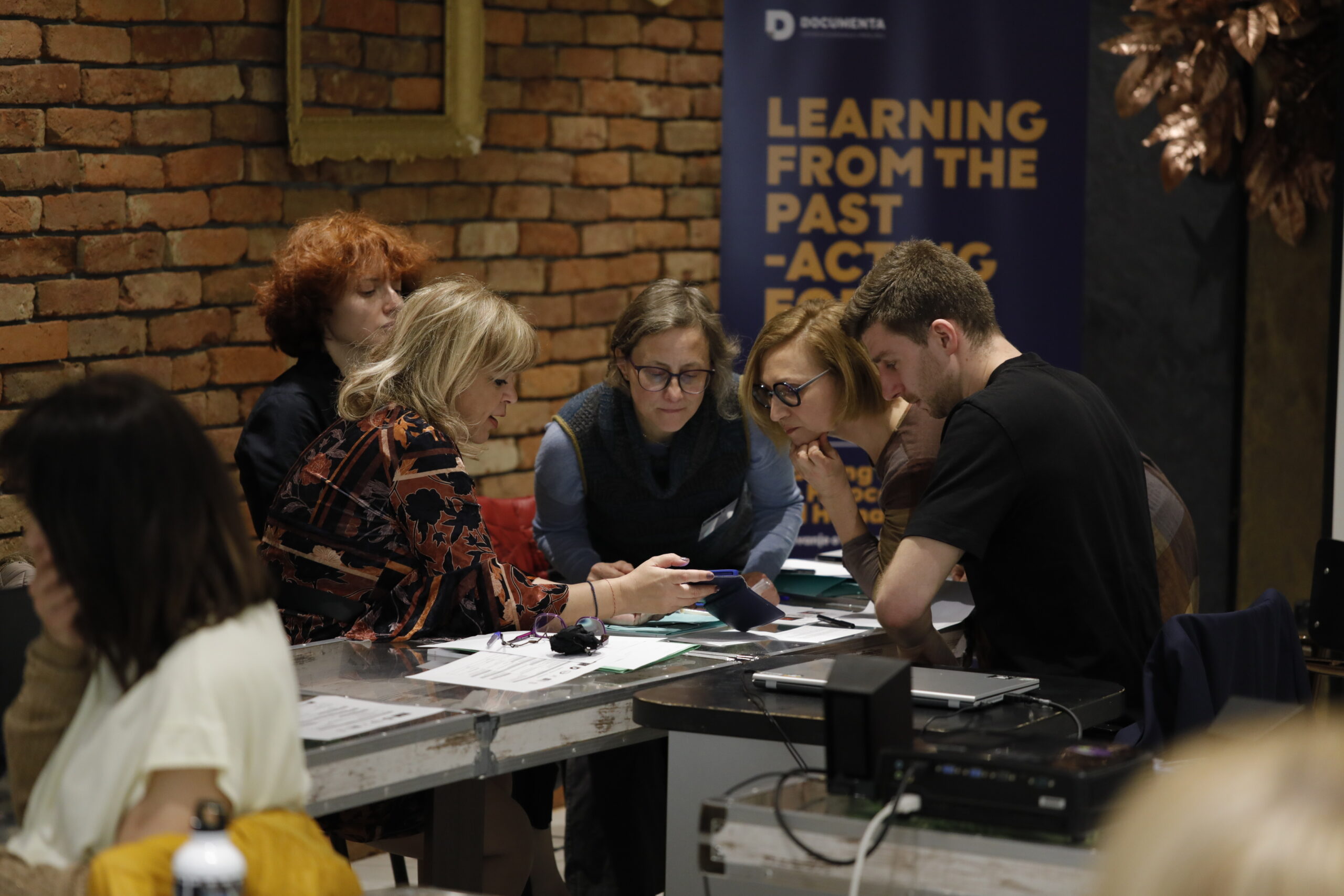
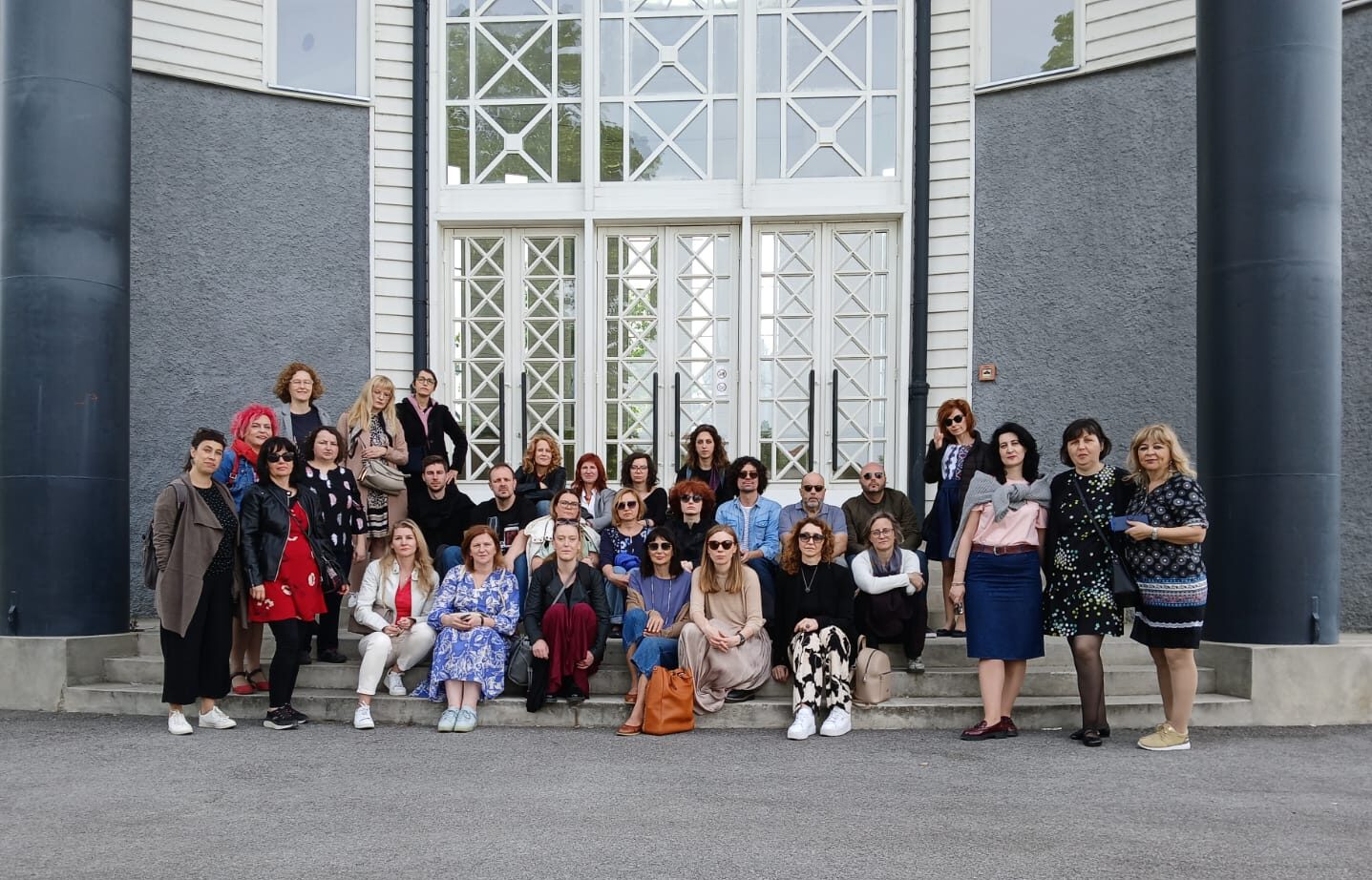
This year’s transnational European Leadership Seminar, Teaching About the Holocaust and Human Rights, took place in Zagreb, Croatia, on April 26-28, 2024. This was TOLI’s 4th transnational European Seminar for TOLI Teachers.

The aim of the seminar was to create an environment for teachers in Europe to exchange experiences, discuss their common histories and common futures, and design effective ways of ensuring that the Holocaust and other crimes against humanity are taught in meaningful ways.
The participants learned about present-day manifestations of Holocaust distortion, antisemitism and hate speech which are jeopardizing the EU democratic and pluralistic values. Special attention was given to the role of women rescuers and resistors during the Holocaust, who can inspire students, teachers and all citizens to be upstanders in situations of social injustice.
The methods used during the seminar included presentations, workshops, group work, sharing of experiences, reflections, analysis, discussion, visits to Jasenovac and Ustica memorials and a guided tour of Holocaust-related places in Zagreb.
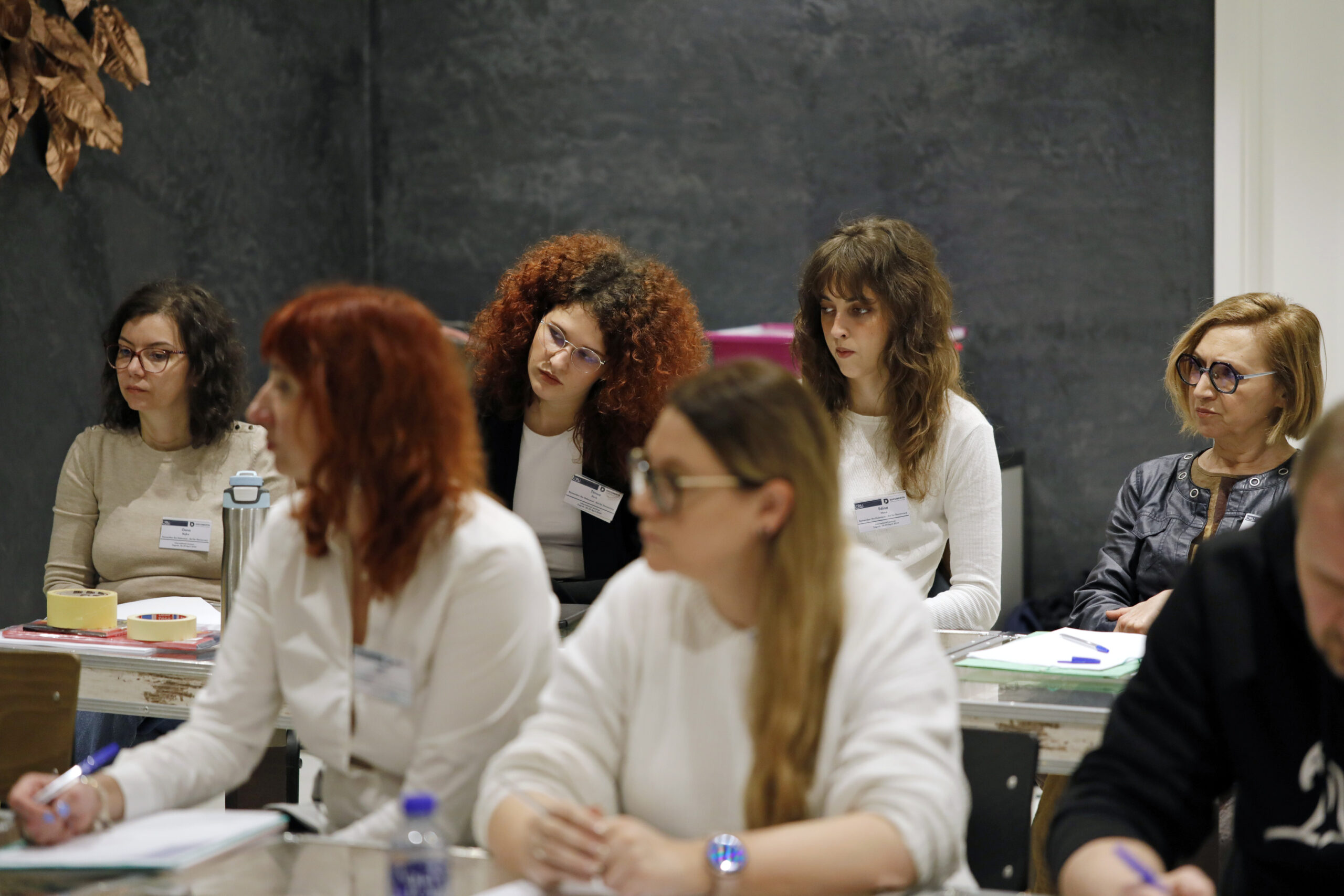
This year’s Seminar opened with speeches by Ognjen Kraus, president of the Jewish Community in Zagreb and president of the Coordination Committee of the Jewish communities of the Republic of Croatia; Tena Bakšaj from the cultural department of the Serbian National Council; Vesna Teršelič, director of Documenta and Oana Nestian-Sandu, TOLI International Program Director.
Afterwards, the participants introduced themselves, sharing about their teaching experience and their motivation to teach about the Holocaust and human rights.

The first session was dedicated to upstanders, heroes, and regular people. Oana Nestian-Sandu invited the participants to reflect on the roles and motivation of people who, in the face of incredible atrocities, chose to be upstanders, resistors and who became inspiring heroes. The participants shared their understanding of what it meant to be a hero in the past and what it means to be one in the present, concluding that heroes are not highly competent persons who fear nothing and have all resources necessary at all times, but rather regular people who decide to act for social justice, with bravery, in the right moment, despite fear and risks, sometimes alone and sometimes in cooperation with other like-minded people.
In the next session, Oana Bajka focused on antisemitism and led the participants in discovering, analyzing and deconstructing the main myths and prejudices about Jews and Judaism that have been present in our societies throughout history, as well as their present-day manifestations.
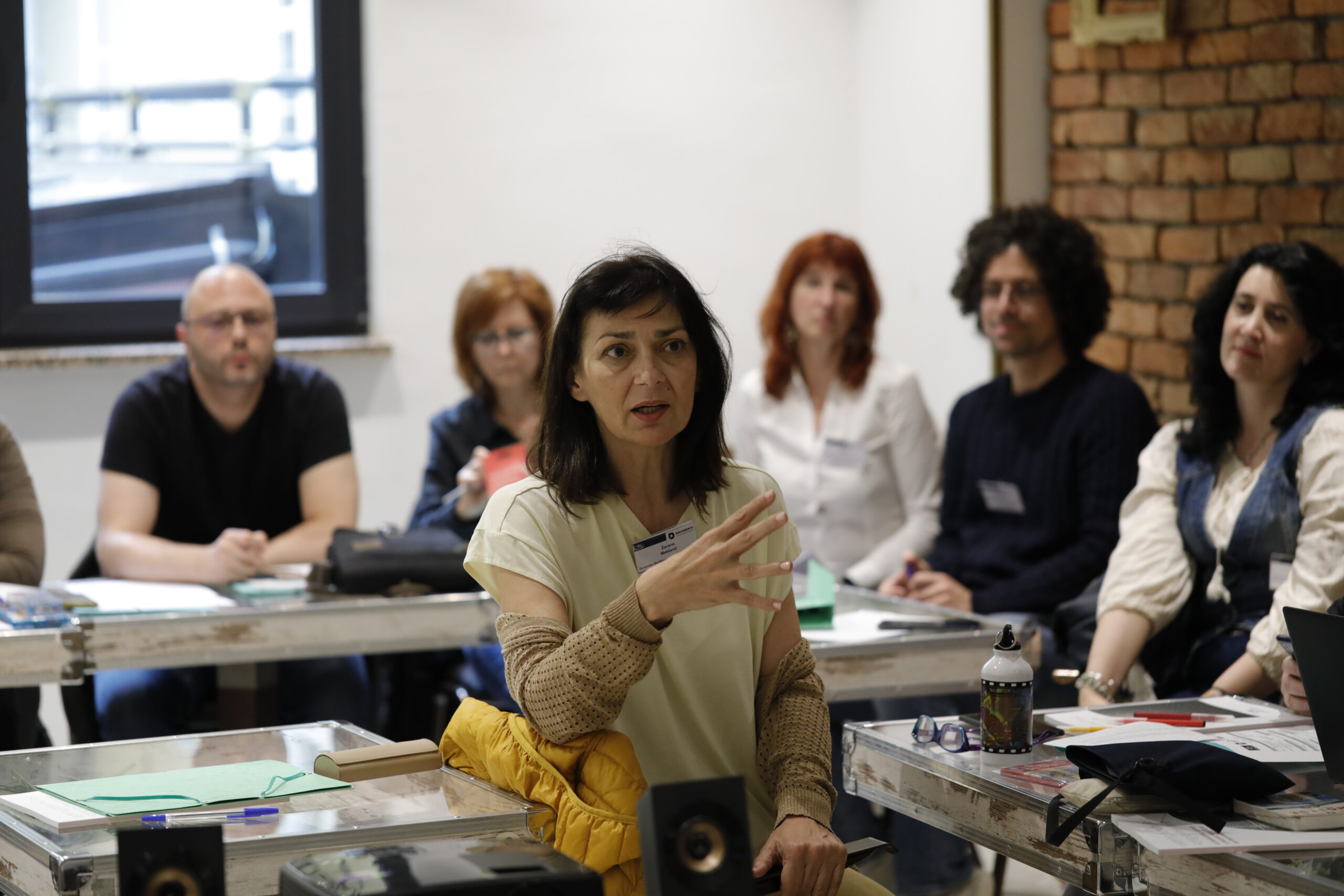
The day continued with a session on the history and remembrance of the Holocaust throughout Europe, led by Tena Banjeglav. The teachers had the opportunity to discuss in small international groups about the Holocaust in their countries, focusing on historical events, but also analyzing who were the people who were persecuted, who were the perpetrators in each of their countries, and what are the main forms of memorialization and remembrance nowadays. In the second part of the workshop, teachers were invited to imagine versions of dignifying memorials which could be created nowadays to honor the memory of the victims of the Holocaust.
In the final session of the day, dedicated to the topic of Holocaust distortion and led by Oana Nestian-Sandu, the teachers learned about different forms of manifestation of Holocaust distortion, their prevalence in different countries in Europe, and their connection to antisemitism. They also reflected on how to prevent and counter Holocaust distortion, with a focus on human rights.

On the second day, the participants visited the Jasenovac Memorial Site and Roma Memorial in Uštica, which was also a part of the Jasenovac camp system. Martina Barešić, the curator of the Jasenovac Memorial, made a presentation on the Holocaust in the Independent State of Croatia, focusing mostly on the pre-war period and the development of the Ustashe movement.
The teachers participated in a guided tour through the memorial site, visiting the most important parts of the former Jasenovac concentration camp, as well as the Jasenovac Memorial Museum. A visit to the Roma Memorial in the nearby village of Uštica gave teachers the opportunity to learn more about the persecution of Roma during the Second World War in the Independent State of Croatia.
The day ended with a group reflection on the visit and about using visits to memorial sites as meaningful educational methods.
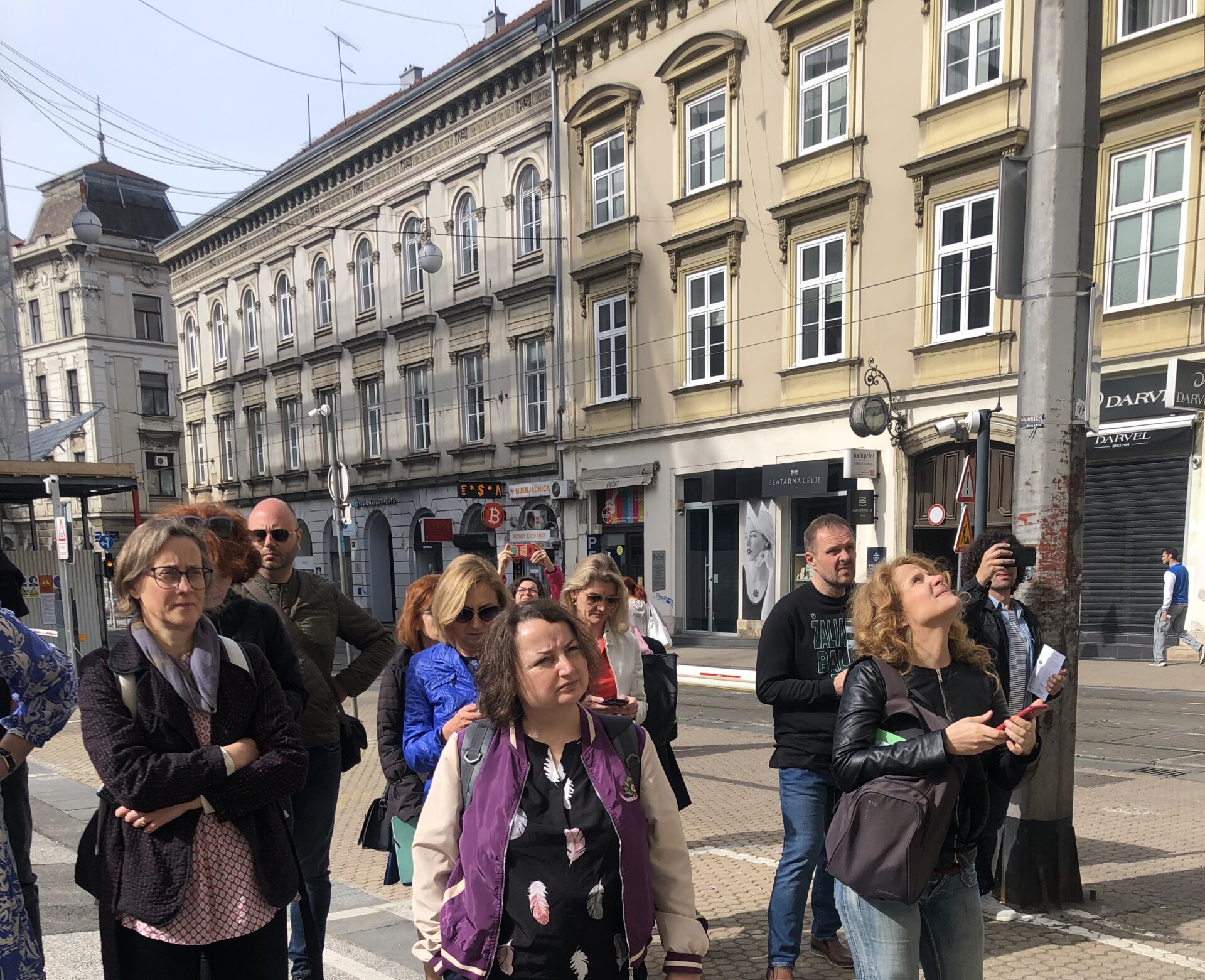
The third day started with a guided tour of Jewish Zagreb, led by Tena Banjeglav. The tour included several locations in the city connected with Jewish history and the contribution of several Jewish people to the city, as well as places connected with the Holocaust, and the resistance movement.
The day continued with the participating teachers, all alumni of TOLI national seminars, presenting their Impact Grant projects as good practice examples in Holocaust and human rights education. These presentations provided inspiration and new project ideas for teachers and sparked motivation for international collaboration within the TOLI teacher network in the future.

In the final part of the seminar, teachers were invited to reflect on the power of using the concept of human dignity as a lens in Holocaust education, in order to ensure a dignified commemoration of the past and instill in students respect for human dignity in the present and future.
Leaders
Oana Bajka
Oana Bajka is the Associate Director of International Programs at The Olga Lengyel Institute. She has over 10 years of experience working with teachers, young people and people from minority communities, especially migrants and Roma, in intercultural education and community development projects. She is in charge of the TOLI Impact Grants Program for European teachers, working with several hundred teachers who are graduates of TOLI seminars in Europe and qualify to apply for the annual impact grant program.
Tena Banjeglav
Tena Banjeglav is the Associate Director, Education and Development, International Program at The Olga Lengyel Institute. She is a historian and a history teacher. She mainly works on educational projects, both formal and non-formal, and has extensive experience in organizing and implementing summer schools, youth exchanges, workshops, seminars for teachers and youth workers, etc. She also works on research projects and deals with topics related to contemporary history, civic education, human rights education and peace education. She is the author of the historical guide Zagreb in war, resistance, creativity and memory. Zagreb in the Second World War. In addition to TOLI, Tena works at Documenta – Center for Dealing with the Past, as a coordinator of educational programs.
Oana Nestian-Sandu
Oana Nestian-Sandu is the International Program Director of The Olga Lengyel Institute. She has a Ph.D. in social psychology and a vast experience working as a teacher trainer in several European countries and in the United States. She is an international expert in intercultural education and human rights education, having worked as a trainer and researcher for the Intercultural Institute of Timisoara and as a consultant for the Council of Europe and for the United Nations. Oana developed TOLI’s programming in Europe since 2014, conducting training for teachers in multiple countries and supporting teachers in implementing local projects with their students.
